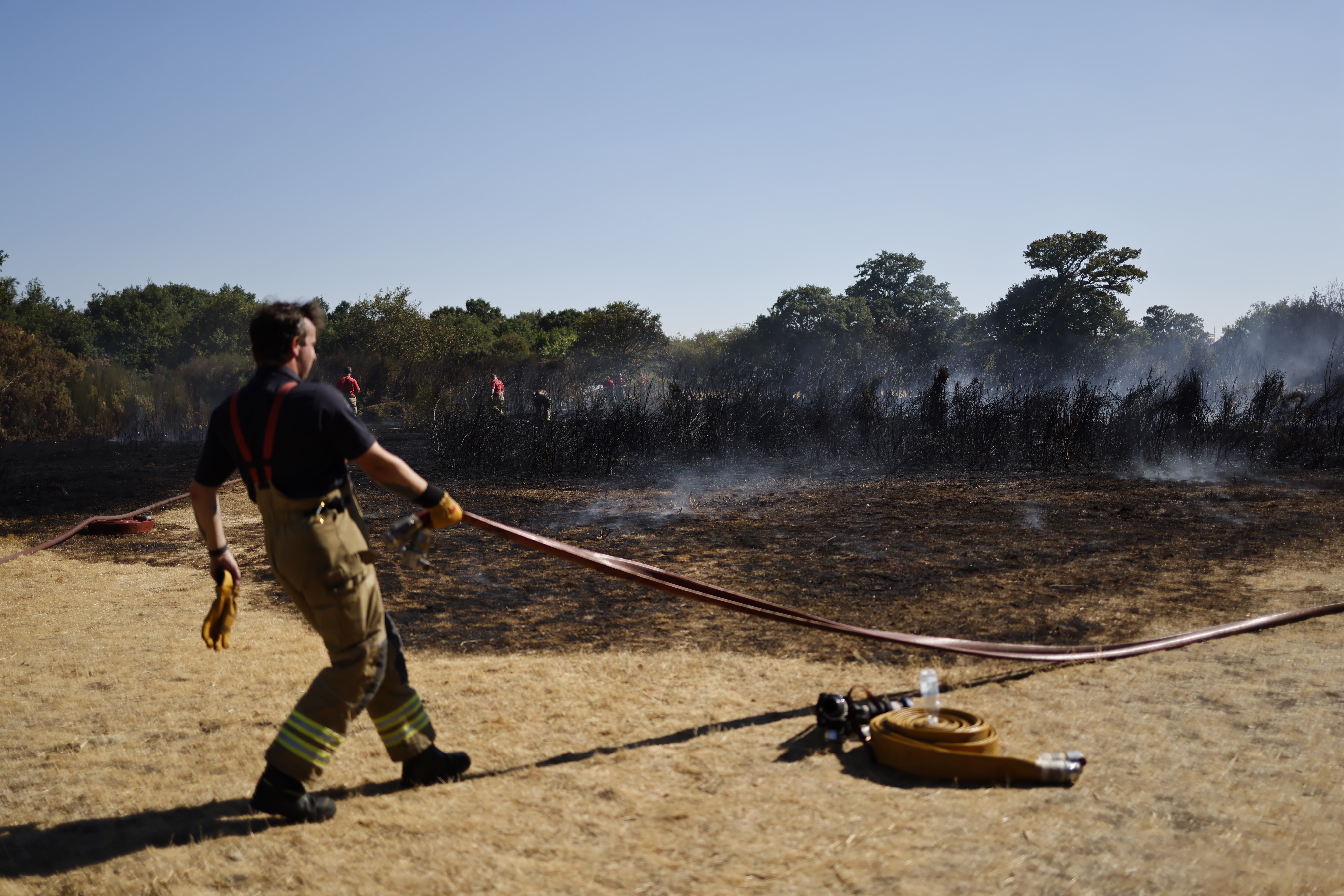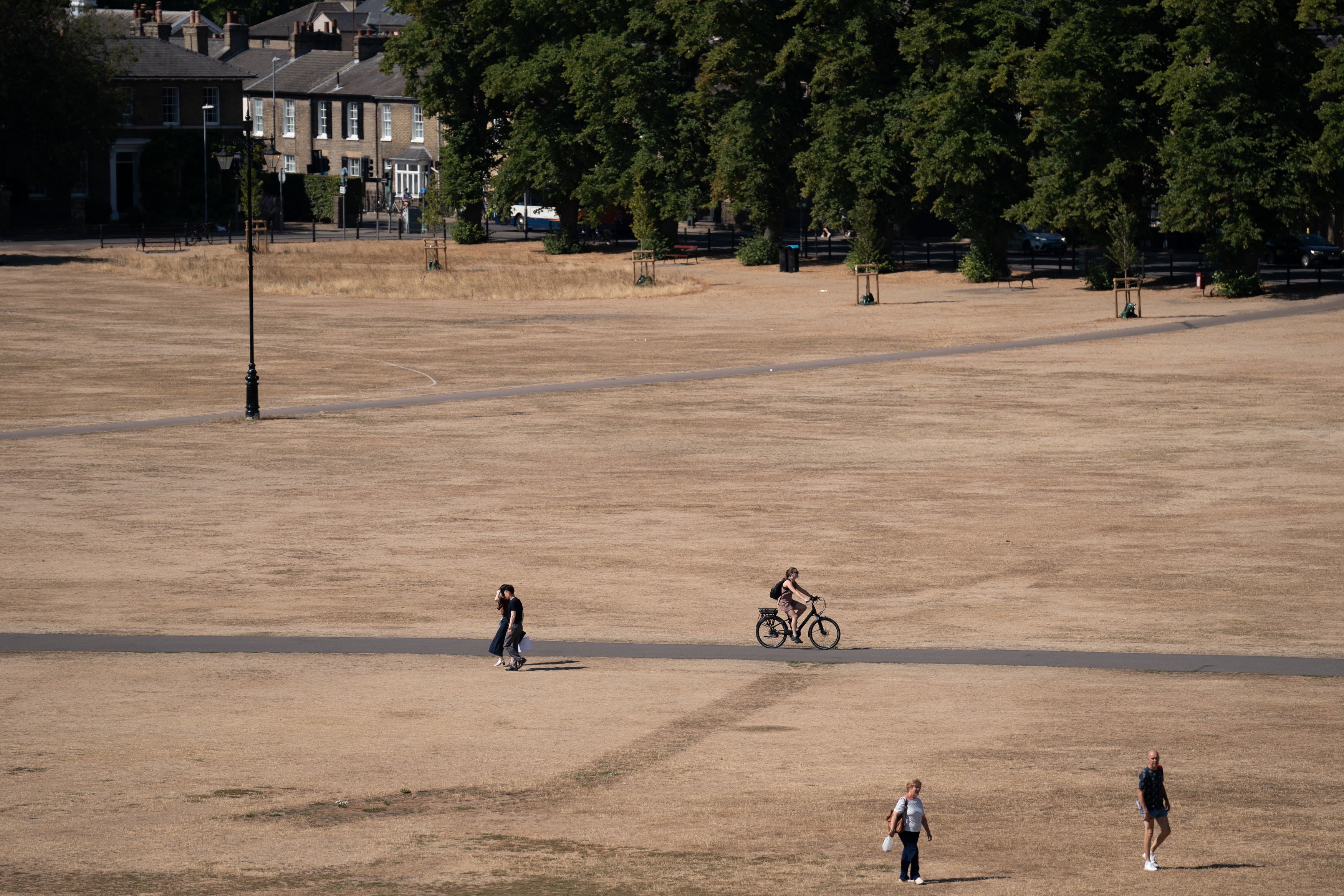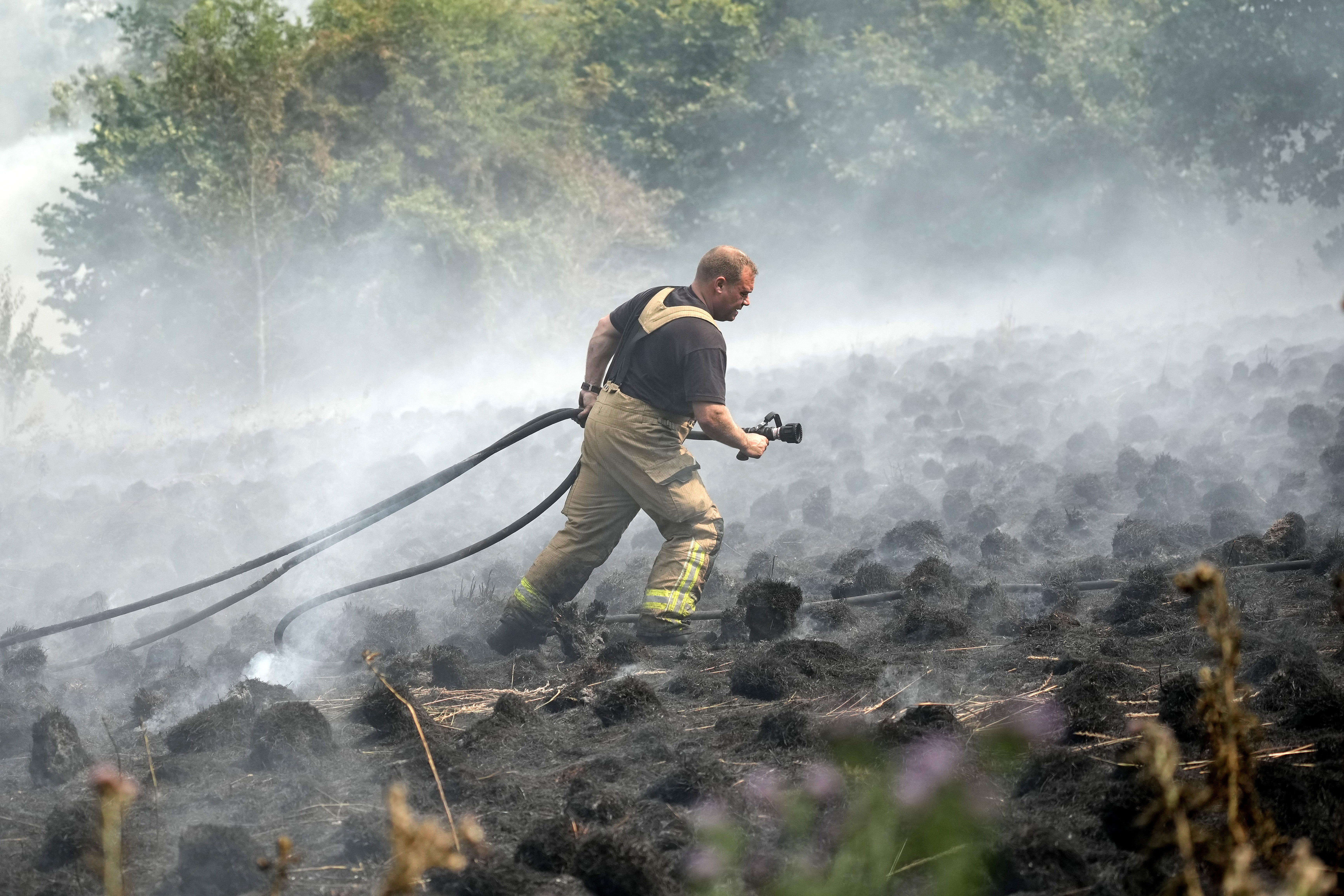“You ain’t seen nothing yet’: Warning UK must brace itself for more drought, heat and fire
‘If we drag our feet on getting to net zero, it’s going to get worse – much worse,’ says one expert
Your support helps us to tell the story
From reproductive rights to climate change to Big Tech, The Independent is on the ground when the story is developing. Whether it's investigating the financials of Elon Musk's pro-Trump PAC or producing our latest documentary, 'The A Word', which shines a light on the American women fighting for reproductive rights, we know how important it is to parse out the facts from the messaging.
At such a critical moment in US history, we need reporters on the ground. Your donation allows us to keep sending journalists to speak to both sides of the story.
The Independent is trusted by Americans across the entire political spectrum. And unlike many other quality news outlets, we choose not to lock Americans out of our reporting and analysis with paywalls. We believe quality journalism should be available to everyone, paid for by those who can afford it.
Your support makes all the difference.Summers marked by more extreme heat, droughts and wildfires are the new reality in Britain as the climate crisis grips the planet, experts have warned.
This summer, which has seen drought declared across swathes of England, raging wildfires, and temperatures spiking above 40C, is a taste of what’s to come according to scientists and policy experts.
Heatwaves and critically low water levels are expected to become more frequent and intense unless humanity stops emitting greenhouse gases.
“This might in 30 years’ time seem like a relatively mild period compared to what we’re likely to be experiencing in 2050,” says Bob Ward, policy director at the Grantham Research Institute on Climate Change and the Environment at the London School of Economics. “People have got to understand that this is just going to get worse.”
Even if the world stopped pumping out all greenhouse gases tomorrow, scientists warn that the extreme conditions being experienced by people across the world would not get better unless a lot of carbon was removed from the atmosphere.
“We’re locked in,” says Hannah Cloke, a professor of hydrology at the University of Reading. “It won’t get better; we’re at that point now where we have warmed the planet.
“There’s nothing we can do about that at this point – our choice is how bad that gets,” she adds. “This is the reality now.”
Heatwaves are becoming more intense and more frequent around the globe because of climate breakdown – extreme weather caused by the warming of the planet, which is a result of human activity.
This made the extreme heat experienced in the UK last month at least 10 times more likely, according to scientists. More concerning perhaps is that scientists say temperatures in western Europe are rising faster than climate models predicted.
While it’s too early to tell whether, or to what extent, this year’s drought was influenced by the climate crisis, scientists say global heating means that drought in the UK will happen more often as temperatures rise.
Agricultural droughts, which tend to happen within one year and are caused by a lack of rain and higher evaporation from spring onwards, will increase as summers become hotter and drier as a result of climate breakdown, according to Nigel Arnell, professor of climate system science at the University of Reading.

Arnell explains that droughts that affect rivers and groundwater – and therefore public water supply – are also expected to become more frequent as a result of warmer springs and autumns, which mean that the soil is drier for longer, so when it rains there’s less chance of the water infiltrating down into the groundwater or generating stream flows.
Even though climate scientists forecast that our winters will, on average, be wetter and warmer, more rain won’t necessarily compensate for the drier and warmer springs and autumns, he adds.
Geographical variability is important, too. In the southeast of England, groundwater sources are generally filled by infiltration in winter, but in other areas, rivers and reservoirs may also be replenished at other times of the year.
Hotter and drier summers also set the conditions for more wildfires, with firefighters saying they thought they’d have longer to prepare for the change in climate.
While climate breakdown does not mean that every year will be like 2022, extreme heat and constraints on water, which set the conditions for wildfires to spread, will only become more common.

“Nothing about this will be stable,” says Ward. “We’ve created an unstable world, and that’s what we’ve got to get used to.
“This is the consequence of us having been too slow to reduce emissions, and now we’re paying the price, and the price is going to be paid through greater damage, greater disruption, more harm to lives and livelihoods.”
Scientists say that in order to avoid the catastrophic consequences of global heating, the world needs to reach net zero carbon emissions – the point at which the amount of human-produced greenhouse gases put into the atmosphere is equal to the amount taken out.
That’s done by cutting carbon emissions to as close to zero as possible, and then using carbon capture and storage to balance out the remaining emissions that humanity can’t stop, either through natural stores such as trees or with man-made technology.

In order to reverse the damage already done, a lot of carbon would have to be taken out of the atmosphere.
In the meantime, to adapt to this new reality, scientists and policy experts say the UK needs to make better use of the water we have, by building new reservoirs, making better connections between reservoirs, changing the way we extract water, and getting to grips with leaks.
The country also needs to curb demand by not using drinking water in hosepipes and toilets, recycling water, requiring water efficiency standards on new white goods, ensuring houses are metered, and perhaps changing the way water is tariffed.
Agriculture will also have to adapt, by planting new crops that are more resistant to hot weather and drought conditions. The UK could also restore wetlands to ensure water is held in the soil during the summer, says Cloke.
“You ain’t seen nothing yet,” says Ward. “If we drag our feet on getting to net zero, it’s going to get worse – much worse.”






Join our commenting forum
Join thought-provoking conversations, follow other Independent readers and see their replies
Comments